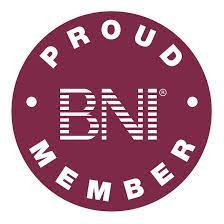Starting your own business is an exciting and rewarding endeavor, but it requires careful planning and preparation. This article aims to provide practical guidance to help you successfully start your own business. From developing a solid business idea to creating a comprehensive business plan and navigating the legal aspects, we will explore key steps that will empower you to turn your entrepreneurial dreams into reality.
I. Developing a Solid Business Idea
A. Identify Your Passion and Skills: Consider your interests, expertise, and skills to identify a business idea that aligns with your passions and strengths.
B. Research Market Demand: Conduct thorough market research to assess the demand for your product or service. Analyze competitors and identify unique selling points for your business.
II. Creating a Comprehensive Business Plan
A. Define Your Business Goals: Clearly articulate your short-term and long-term business goals. Outline the vision, mission, and values that will guide your entrepreneurial journey.
B. Conduct a Financial Analysis: Estimate the startup costs, projected revenue, and expenses. Develop a sound financial plan that includes budgeting and potential funding sources.
III. Navigating Legal and Administrative Processes
A. Choose a Business Structure: Decide on the legal structure of your business, such as sole proprietorship, partnership, or corporation. Consult with legal professionals to ensure compliance with regulations.
B. Register Your Business: Complete the necessary registration and licensing procedures as required by your jurisdiction. This includes obtaining any required permits and tax identification numbers.
C. Secure Intellectual Property: Protect your business’s intellectual property, such as trademarks, copyrights, or patents. Consult with legal experts to safeguard your unique ideas and products.
IV. Building a Strong Foundation
A. Establish a Professional Network: Network with industry professionals, mentors, and potential collaborators. Attend relevant events and join business associations to gain valuable insights and connections.
B. Develop a Marketing Strategy: Craft a comprehensive marketing plan that includes branding, online presence, and targeted advertising to reach your target audience effectively.
C. Embrace Continuous Learning: Stay updated with industry trends, technology advancements, and best practices through workshops, online courses, and industry publications.
Start your own business requires passion, careful planning, and a willingness to adapt and learn. By developing a solid business idea, creating a comprehensive business plan, navigating legal and administrative processes, and building a strong foundation, you can set yourself up for entrepreneurial success. Remember to stay focused, persevere through challenges, and embrace opportunities for growth. With these strategies in mind, you’ll be well-prepared to embark on your entrepreneurial journey and turn your business aspirations into a reality.










